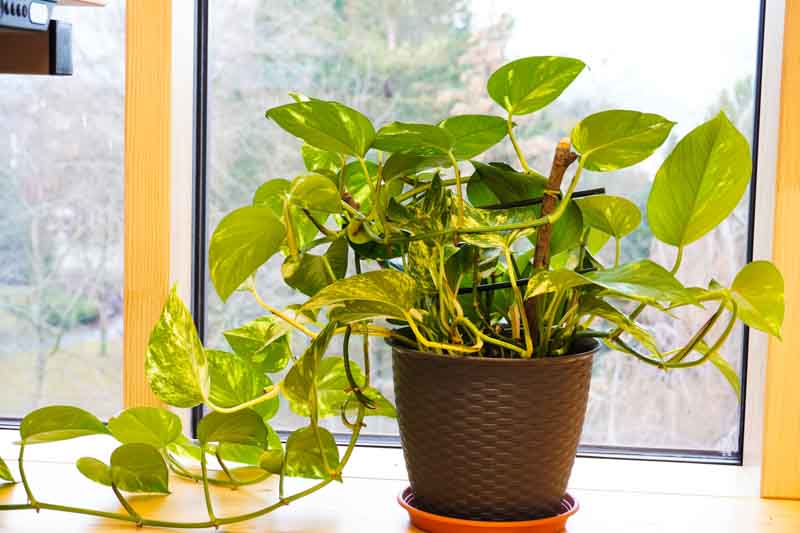Epipremnum (Pothos)
Epipremnum, widely recognized as Pothos or Devil’s Ivy, comprises a group of evergreen perennials known for their attractive, glossy foliage and remarkable adaptability to indoor environments. Originating from the tropical and subtropical forests of Southeast Asia, Australia, and the Pacific Islands, these plants have made their way into homes and offices around the globe due to their ornamental value and air-purifying properties.
Native: The genus Epipremnum hails from moist, forested regions where it often climbs high into the tree canopy, leveraging its aerial roots to secure moisture and nutrients. This native habitat informs its care as a houseplant, thriving in humid conditions with indirect light.
Plant Type and Growth Habit: As vining plants, Epipremnum species exhibit a versatile growth habit, capable of trailing from hanging baskets or climbing on supports. This adaptability allows them to be used in various decorative ways, from lush green curtains to tabletop displays.
Size: Indoors, Epipremnum can grow several feet in length, with vines easily reaching over 10 feet if allowed. This rapid growth makes regular pruning a useful practice to keep the plants manageable and bushy.
Foliage: The leaves of Epipremnum are its standout feature, varying in color from deep green to variegated patterns of yellow, white, and cream. The glossy, heart-shaped leaves can grow quite large, especially when the plant is allowed to climb.
Hardiness: Epipremnum is hardy in USDA zones 10 to 12, thriving in warm environments. As a houseplant, it prefers temperatures between 60-85°F and high humidity but is notably tolerant of less-than-ideal conditions.
Uses: Beyond their visual appeal, Epipremnum plants are valued for their ability to purify indoor air, removing toxins such as formaldehyde and benzene. They are also used in feng shui to bring positive energy into a space.
Toxicity: It’s important to note that Epipremnum plants are toxic to humans and pets if ingested, containing calcium oxalate crystals that can cause irritation and swelling of the mouth, tongue, and throat. Pet owners and parents should keep these plants out of reach of children and animals.

